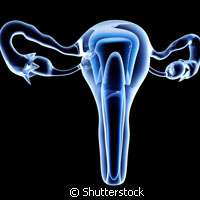Researchers offer hope to prolapse sufferers

Scientists in Scandinavia have found a new way to treat sufferers of pelvic organ prolapse. Presented in the New England Journal of Medicine, their study reveals that the use of synthetic mesh can have a more beneficial effect on patients than traditional surgery. The team, led by the Karolinska Institutet in Sweden, says synthetic mesh not only restores genital anatomy but can also provide more efficient symptom relief.
Prolapse means 'to fall out', and in medicine, it is a condition where organs, including the uterus and heart valves, fall down or slip out of place. Past studies found that traditional prolapse surgery sometimes fails to pass muster, resulting in less than stellar results for patients. An average of 7,500 prolapse operations are carried out each year in Sweden alone.
This latest study focused on pelvic organ prolapse, a common post-childbirth condition involving the loss of support for the pelvic organs and vagina. The pelvic organs descend and can at times protrude through the vaginal opening. The scientists compared traditional prolapse surgery with a new method based on the surgical implantation of a polypropylene mesh to provide permanent support for the weakened pelvic floor.
They evaluated 389 women who were randomly assigned to a study treatment. A total of 200 women were treated with the transvaginal mesh kit, while the remaining participants underwent traditional colporrhaphy (the surgical repair of a defect in the vaginal wall). The team found that at the end of the first year, the primary outcome was considerably more common in 60.8% of the women treated with transvaginal mesh repair compared with 34.5% of the women who underwent colporrhaphy. Also, mesh-repair surgery decreased the risk of relapse for patients.
But it should be noted that using synthetic mesh can also increase the risk of complications. The rates of intraoperative were greater in the mesh-repair group versus the colporrhaphy group, and bladder perforation rates were 3.5?% in the mesh-repair group compared to 0.5?% in the colporrhaphy group. The surgery also lasted longer for the former, and there were a number of cases of mesh-related problems up to a year post-surgery.
'The new surgical method has distinct advantages over traditional surgery,' explains Professor Christian Falconer of Karolinska Institutet, a senior consultant at Danderyd Hospital and co-author of the study. 'But the fact that the risk of complications increases means that we must be careful to inform the patient and weigh up the pros and cons of the two methods in every individual case.'
Professor Falconer says the study is significant because it confirms a new treatment principle and establishes the use of a permanent vaginal support as another way to treat pelvic organ prolapse.
But the team says more work is needed on both material and method development so as to help identify patients that can benefit from this treatment and decrease the risk of complications.
More information: Altman, D., et al. (2011) Anterior colporrhaphy versus transvaginal mesh for pelvic-organ prolapse. N Engl J Med 364: 1826-1836.















